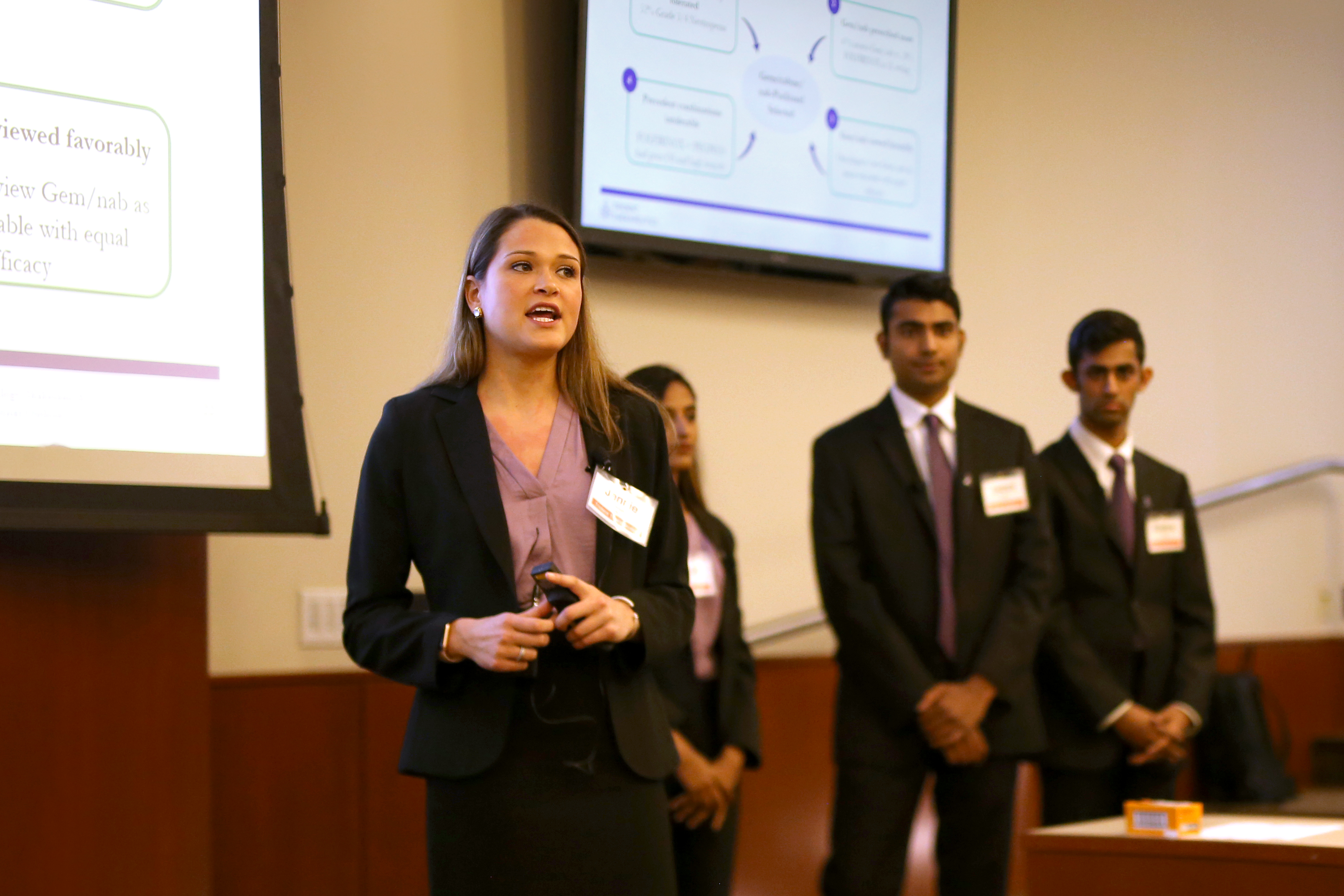LSM is squarely focused on practical knowledge—the applications, not just the theory, of science. Accordingly, opportunities for hands-on learning abound here.
Summer Internships
LSM integrates real-life experience into the academic curriculum through two paid summer internships after the sophomore and junior years. One of these internships centers on scientific research, such as bench, clinical, or field research, data management, statistical analysis, or computational modeling. The other is business-oriented, and could involve financial or market analysis, product licensing, clinical or business development, and legal or public policy research.
These LSM internships are offered by employers across the United States, including small biotech startups, large pharmaceutical corporations, government laboratories, non-profit organizations, investment banking houses, venture capital firms, and consulting groups that specialize in health care, biotechnology, or environmental issues. In applying for internships, students receive help from the LSM program directors, who can guide them toward opportunities in keeping with their academic and career interests.
The internships are important in several ways. First, they allow students to put their LSM education into action, and to see how the issues they study at Penn play out in the “real world.” Second, the internships help students hone analytical skills that they will use in the LSM senior capstone course (LSMP 4210), when they go through the challenging process of devising a business plan for an early-stage scientific technology. And ultimately, the internships give students a leg up in exploring possible career options and figuring out how they want to apply their LSM education after graduation.
To learn more about our student's internship experiences check out Omnia Magazine's article about the LSM internship program.
On-Campus Research
Beyond the summer internships, LSM students are encouraged to engage in additional bioscience or business research at Penn during the academic year.
Penn houses literally hundreds of biological and biomedical laboratories on its campus. The Department of Biology, Perelman School of Medicine, School of Dental Medicine, School of Veterinary Medicine, Wistar Institute, as well as dozens of other research centers are all located within walking distance of one another. The result is that Penn students interested in scientific research have a wealth of opportunities to get involved in both bench and clinical projects. Some students do research for independent study credit within their major; others take on research positions as pure volunteers or for pay. Either way, students find that the experience of doing novel research deeply enriches the scientific education they receive in the classroom at Penn.
The Wharton School, in addition to being the national leader in undergraduate business education, is at the forefront of innovative business and management research. Wharton is home to 25 research centers and initiatives, covering topics from ethics and leadership to international finance and risk management. Students with entrepreneurial interests also can participate in events and competitions sponsored by Wharton Entrepreneurial Programs. But even at centers and institutes outside Wharton, many research groups at Penn are dedicated to investigating critical questions related to health care access, environmental regulation, public health preparedness, nursing care outcomes, and other scientific and biomedical issues.

